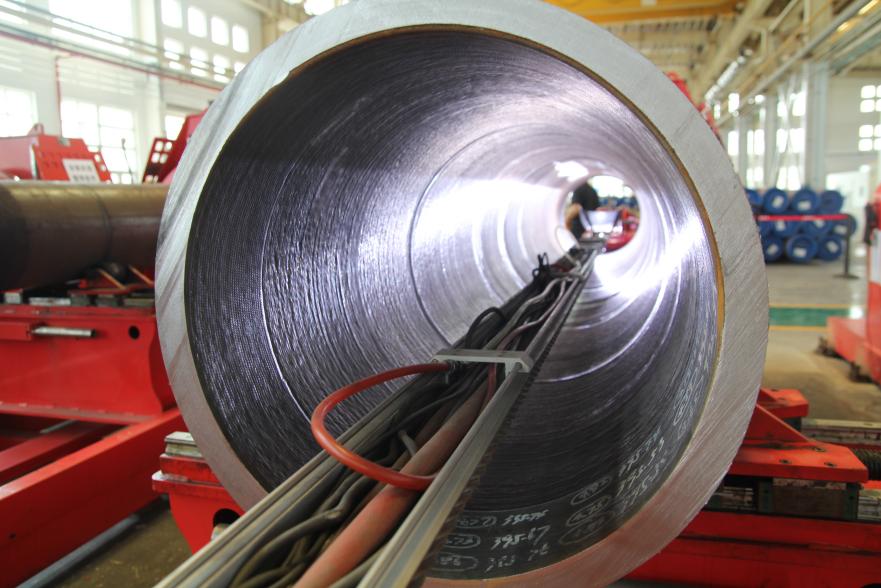Why high temperature clad pipe is a game-changer for extreme heat applications
In modern industry, many critical processes rely on pipelines that operate under extreme heat. Standard carbon steel pipes, however, are simply not designed to withstand these conditions. The combination of high temperatures and corrosive or erosive media can lead to rapid material degradation, resulting in costly failures, unscheduled downtime, and significant safety risks. This is where a high temperature clad pipe provides a revolutionary solution. By combining robust structural integrity with a specialized inner layer, it is engineered to perform when the heat is on.

High temperature clad pipe in FNS Group
What defines a high temperature clad pipe?
A high temperature clad pipe is a type of bimetallic clad pipe specifically engineered to maintain its structural and protective properties at elevated temperatures. Unlike standard clad pipes, these products are precision-built to operate in conditions that exceed the limits of conventional materials.
Its construction features two metallurgically bonded layers:
Outer Layer: Typically made from high-strength carbon steel for structural integrity, pressure containment, and cost efficiency.
Inner Cladding: A thin but highly durable sheet of heat resistant alloy cladding, such as Inconel, Hastelloy, or specialized stainless steel grades. These materials provide exceptional resistance to oxidation, high-temperature corrosion, and creep deformation, even under prolonged exposure to extreme heat.
In some manufacturing processes, weld overlay cladding is applied instead of a bonded sheet, allowing for precise alloy deposition in critical areas.
Core Advantages of High-Temperature Cladding
The dual-material design of a corrosion resistant clad pipe offers performance benefits that standard piping cannot match:
- Exceptional Thermal Stability – Heat-resistant alloys maintain their strength and protective properties at elevated temperatures, unlike conventional steels that may soften or weaken.
- Corrosion Resistance at High Heat – Elevated temperatures accelerate chemical reactions and corrosion rates. The cladding materials form a durable barrier, protecting the pipe from aggressive chemicals, oxidizing gases, and hot corrosive liquids.
- Enhanced Safety and Reliability – Preventing material degradation reduces the risk of leaks, ruptures, and unplanned shutdowns.
- Long-Term Cost Efficiency – Although the upfront cost is higher, extended service life and reduced maintenance translate to significant lifecycle savings.
Key Applications of High Temperature Clad Pipe
High temperature pipeline solutions are critical in industries where both heat and corrosion resistance are essential:
- Power Generation – Steam lines, boiler systems, and heat exchangers handling high-temperature steam and gases.
- Petrochemical and Refining – Reactors, catalytic cracking units, and furnace piping exposed to hot hydrocarbons and corrosive gases.
- Metallurgy and Steel Production – High-temperature transport lines around furnaces and reactors.
- Chemical Processing Plants – Piping systems exposed to aggressive chemicals at elevated temperatures.
FNS Pipeline’s Expertise in Weld Overlay and Cladding Technologies
At FNS Pipeline, we specialize in designing and manufacturing high temperature clad pipes tailored to your operational needs. Our weld overlay technology and metallurgically bonded clad pipe fabrication ensure optimal material selection, perfect bonding, and maximum durability.
We conduct rigorous non-destructive testing (NDT) to guarantee quality and structural integrity. Whether your project requires Inconel cladding, Hastelloy overlays, or specialized stainless steel linings, we deliver solutions that perform reliably under the toughest conditions.
Ready to strengthen your high-temperature piping systems?
Contact FNS Pipeline today to explore our high temperature pipeline solutions and secure long-lasting protection against heat, corrosion, and wear.


